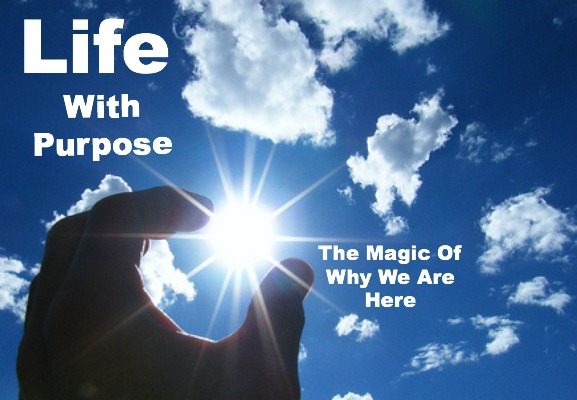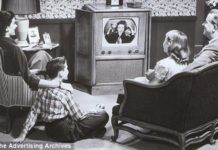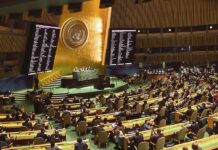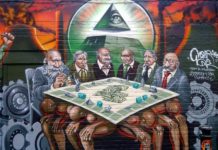As I was trying to fall asleep last night, I started contemplating the meaning and purpose of life. At first, I thought that these were complicated topics, but I began to realize that I already intuitively knew the answers. The hard part was in trying to find a way to articulate those answers, from intuitive feelings, into words. I also realized that the meaning and purpose of life are intricately intertwined in politics, making them important things to articulate.
 What I came up with is that the meaning of life is the individual, whereas the purpose is the manifestation of that meaning in the world around us. In other words, we all find meaning in the world on our own, making meaning a purely individual perspective. Life, in a sense, is meaning. Purpose involves our interactions with one another, and with the world around us. Everything we do has an impact on the world, no matter how minute, and we are pursuing our purpose when our actions are aligned with our meaning.
What I came up with is that the meaning of life is the individual, whereas the purpose is the manifestation of that meaning in the world around us. In other words, we all find meaning in the world on our own, making meaning a purely individual perspective. Life, in a sense, is meaning. Purpose involves our interactions with one another, and with the world around us. Everything we do has an impact on the world, no matter how minute, and we are pursuing our purpose when our actions are aligned with our meaning.
We start with a world view, which is a personal framework for how we see the world around us. By logically analyzing that world view, we derive meaning. By logically analyzing our meaning, we derive purpose. For most of us, our purposes act as feedback loops, trying to improve our world view by making the world a better place.
Politics is nothing more than society building a framework within which purpose can be achieved. What are political parties, other than people who see the world in similar ways (a.k.a. ‘meaning’), and who then band together to try and make changes based on that meaning, for the betterment of the world (a.k.a. ‘purpose’)? We have different parties (and different factions within parties) because different people find different meanings in the world, driving them into purposes that are in conflict with the purposes of those who see the world differently. Someone who sees society through the prism of race and oppression will have very different purposes than will someone who sees society as being filled with opportunity for all. Someone who sees the world as one of class struggle will have very different purposes than will someone who sees unfettered class mobility. Someone who believes that unfettered class mobility is impossible will have very different purposes than will someone who believes that any hindrance on class mobility is caused by artificial barriers put in place by government.
There are some who do not live purposeful lives, or whose sole purpose is to benefit themselves, with no thought toward anyone else. These people exist, and they are either lost, or evil. In politics, we often call those with whom we disagree, ‘evil’ (or treat them as if they are) but how many people are truly evil? Don’t the vast majority of the people with whom we disagree just see different meanings, and derive different purposes – purposes in which they honestly believe? Shouldn’t we assume that those we disagree with have good intentions, even if we think they have a warped world view? Too many people project bad intent upon those with whom they disagree.
I believe virtually everyone wants to see everyone else succeed in life. Virtually everyone wants to end poverty, and help their fellow people live better, more productive lives, but those who view the world differently will often have very different ideas for how to accomplish these things. It is time for people to stop pretending that half the population are thugs who care about no one but themselves, and to recognize that for the most part, we all want similar things.
We are all emotionally tied to the meanings we find, and purposes we develop, out of our world views, and because of this, once we reach a certain age, it is hard to change our meanings and purposes. We generally debate in the realm of meaning and purpose as well, but the most productive area for debate is that of world view, for if someone has a faulty view of the world, they will draw the wrong meanings, and develop the wrong purposes. Those who view the world as filled with greed and malice will want a society in which people are controlled. Those who view the world as one filled with compassion and opportunity will want a society in which people are as free as possible to compassionately pursue opportunity. Most people see the world as one with greed, malice, compassion, and opportunity (as well as various other good and bad traits), and will want the world more or less controlled, based on which traits they believe exist in greater measure. To the degree that people think other people are ‘good,’ they will want other people free, and to the degree that people think other people are ‘bad,’ they will want other people controlled. To the degree that people think other people are smart, they will want them left alone, whereas to the degree that people think other people are stupid, they will want other people babysat. There seem to be many who think that inconsequential decisions, like who we sleep with, should be left up to us, whereas more important decisions, like what we are allowed to eat, or what voices we are allowed to listen to, should be left up to others.
Our colleges and universities, and to a more limited degree, our k-12 school systems, understand the importance of world views in shaping meanings and purposes. College professors in most soft fields, like the humanities and English departments, spend a great deal of time working to shape our children’s world views into those that match the political ideologies of those professors. These professors make certain classes mandatory, ensuring that they get their grip on all students, including those who study hard sciences, like engineering or physics. Our children are told that the way to love some groups is to hate others groups (and that they are ‘woke’ if they hate the right groups), and then the same professors who teach this hate and division feign wonder when the hate they taught manifests itself into rage and violence. Our professors should stop teaching hate.
We need more balance on college campuses. We need more conservative voices, and a more constructive debate. Both sides should have equal access in reaching out to the hearts and minds of the young – we owe it to the young to give them as much information as possible, and to let them make up their own minds.
You can always tell whose world view is better rooted in fact by looking at who allows open discussion, for discussion comes with the notion that the best ideas will be accepted by the most people, and will drive out worse ideas. Al Gore, in a rare moment of insight, called this concept the ‘marketplace of ideas.’ When one side of the political discussion calls the ‘marketplace of ideas,’ ‘closed for business,’ and says that ‘the time for debate is over,’ we know that they lack the moral rectitude to have their ideas, and the world views that drive them, scrutinized. If liberals were not afraid of critical analysis, they would not try so hard to shut down conservative voices, and would not try to turn their fight against the 2nd Amendment into a children’s crusade, but would, rather, engage conservatives with logic and reason.
I’ll have another article soon where I discuss different ideas for re-introducing conservatism onto our colleges and universities. If you have an idea that you would like included, please leave a comment below.

























[…] on the meaning of life, and of spiritualism in general. This will build upon my earlier post, on politics, and the meaning of life. To those who don’t like religious posts, I would ask that you not read this one, and to […]